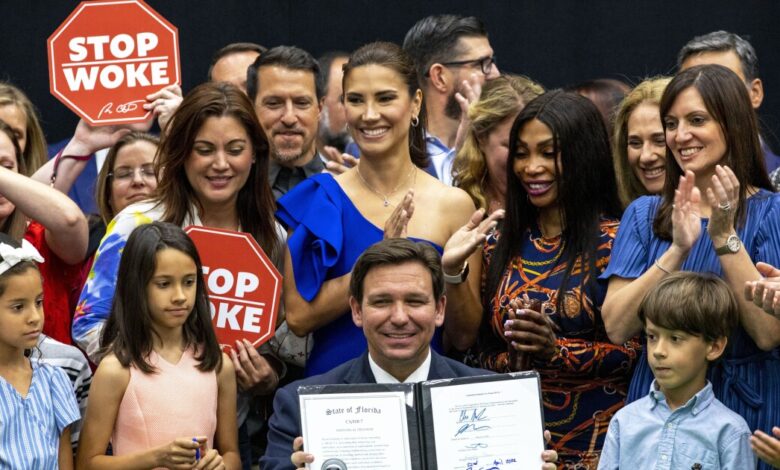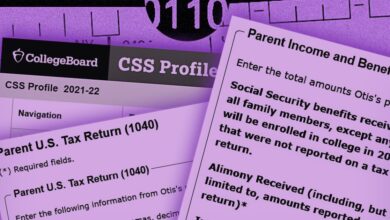Most Americans Oppose Laws That Curtail Professors’ Classroom Speech

Most Americans oppose laws that regulate how professors are allowed to speak about certain topics in college classrooms. Still, nearly one-third of people — across the political spectrum — believe that professors have too much freedom to speak their minds in the classroom.
The results come from a new YouGov poll, which found that only 19 percent of U.S. adults support these laws. That number is higher among Republicans; 30 percent say the government should be able to regulate professors’ classroom speech. And 50 percent of Republicans say professors have too much freedom to express themselves in class. Older and more educated Americans are the most likely to oppose these laws, which is true among both Democrats and Republicans.
The findings reflect a sample of 7,556 U.S. adults who answered an online survey this month about campus free speech. YouGov says the respondents “were weighted to be representative of the U.S. population, based on gender, age, race, education, U.S. census region, and political party.”
Jeremy C. Young, a senior manager with the free-expression advocacy group PEN America, said the study’s main finding is consistent with what previous polls have shown: People who want to regulate the speech of instructors make up “a tiny minority.”
That fewer younger people were opposed to government regulation of professors’ classroom speech indicates to him that there is a need for greater social education about the importance of free expression on college campuses.
“We think that the decline in support for free speech among young people and college students primarily comes from the left,” Young said. These students often think of free speech as a tool that’s used against social- and racial-justice movements, according to Young. But there is also a “sliver of opposition” to free expression from students on the right, he said, who see it as an excuse for college professors to express their liberal views in class.
Over the past two years, Republican-backed bills have increasingly taken aim at the discussion of race, racism, and gender in public-college classrooms. The laws often purport to target the teaching of critical race theory, an academic concept explaining how racism is embedded in law and policy, which has become a political punching bag for the right.
The State of Florida recently argued in a court filing that professors’ in-class instruction at public colleges is “government speech” and therefore fair game to be regulated by state lawmakers.
This year, bills attempting to curb diversity training and limit classroom discussion of “divisive issues” in higher ed have been introduced and passed at higher rates than last year, according to PEN America, which began tracking such bills in January 2021.
An analysis from August found that in 2022, 39 percent of the introduced bills — what the group calls educational gag orders — have targeted higher ed, compared with 30 percent last year. Among those passed this year are:
- Florida’s HB 7, which bars public colleges from teaching material that “espouses, promotes, advances, inculcates, or compels” an individual to believe in certain ideas about race, sex, privilege, and national origin, and requires instruction to be consistent with a list of principles of “individual freedom.”
- South Dakota’s HB 1012, which bans public colleges from directing students or employees, in a training or classroom setting, to adopt certain ideas related to “divisive concepts,” such as “that an individual, by virtue of their race, color, religion, sex, ethnicity, or national origin is inherently racist, sexist, or oppressive, whether consciously or subconsciously.”
- Tennessee’s SB 2290, which bans public colleges from including similar “divisive concepts” related to race, sex, and privilege in “seminars, workshops, trainings, and orientations.”
The bills introduced this year are also “strikingly more punitive,” according to the PEN report. Many propose monetary fines and disciplinary action, and allow lawsuits by individuals who feel they have been punished for not accepting “divisive concepts.”
The YouGov survey also asked about people’s perception of professors’ speech and students’ speech. Sixteen percent of respondents said they thought professors had “far too much” freedom to speak their minds in the classroom, while just 7 percent said the same about students.
Source link






